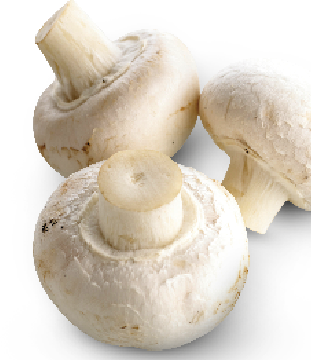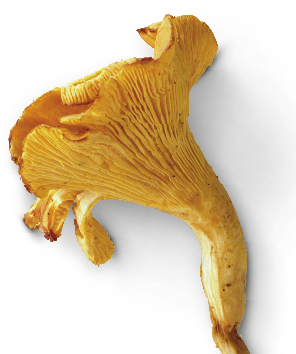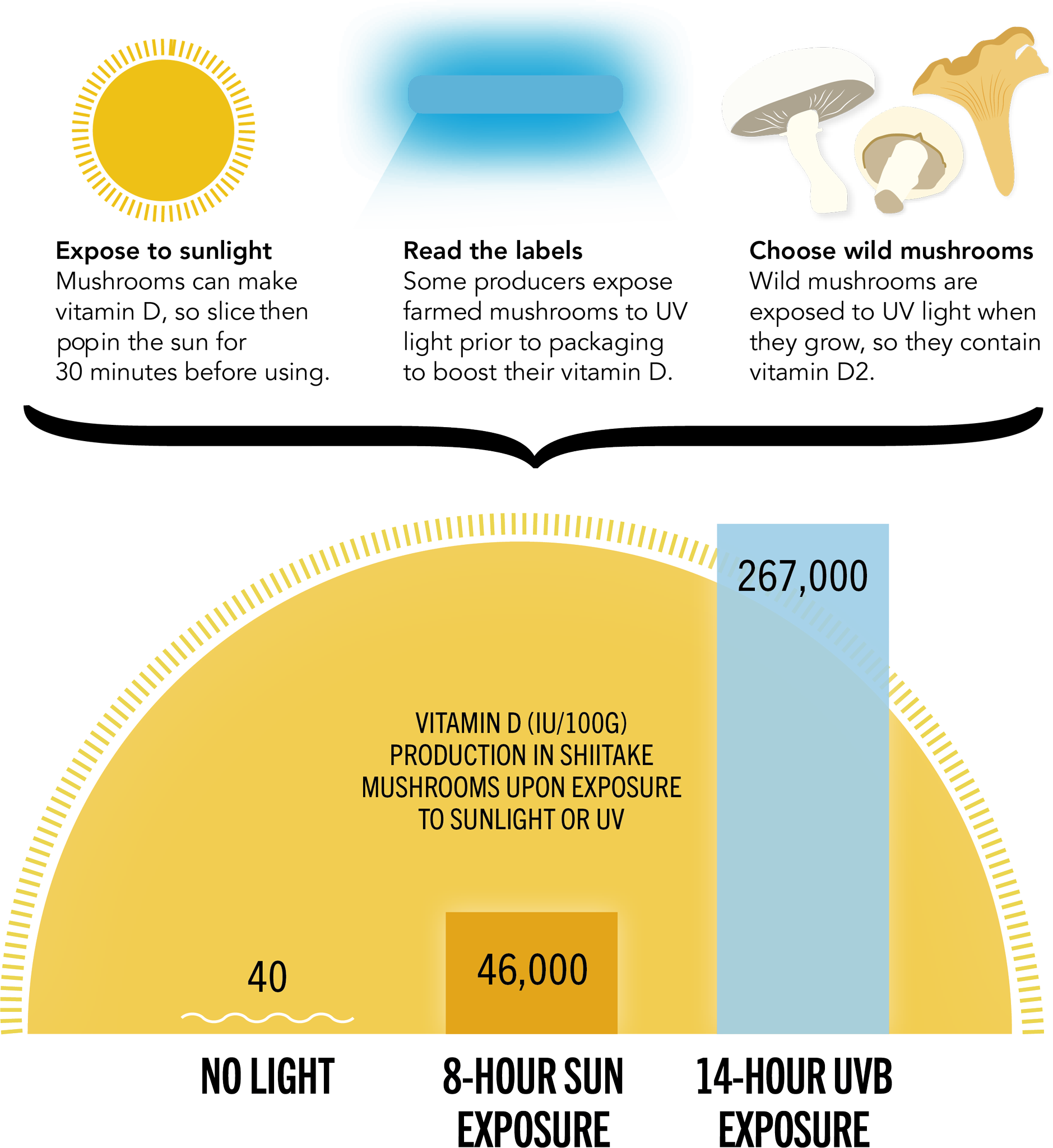-SUPERGROUP-
MUSHROOMS
Throughout history, mushrooms have been used as medicine to treat many ailments. Now modern science backs up their many health-promoting roles, which include boosting immunity, regulating blood pressure, and reducing inflammation.
Discover how these commonly eaten mushrooms benefit health and longevity via their phytochemicals.
Button
- are an excellent low-fat source of antioxidants.
Portobello
- are rich in selenium, a key antioxidant.
Oyster
- provide B vitamins, which are important for metabolism.
Porcini
- contain ergosterol, an anti-inflammatory.
Chanterelle
- are rich in potassium, which helps regulate blood pressure.
Shiitake
- are good for boosting vitamin B6, low levels of which have been linked to depression.
Enjoy two to three times a week. One serving is about 10 button mushrooms or four medium mushrooms.
Choose firm fresh or dried mushrooms, or canned in water without added salt. Wild types contain more vitamin D2.
Keep fresh mushrooms in a paper (not plastic) bag in the fridge; store canned or dried mushrooms in a cupboard.
Eat raw or cooked: it’s best to grill or microwave if cooking. Soak dried first.
Cancer competitors
Many lab-based studies have suggested some phytochemicals in mushrooms help to prevent, stop the growth of, or even treat cancer. Much of the focus has been on lentinan, found in shiitake mushrooms. A study of Chinese women found those who ate 10g (1/4oz) of fresh mushrooms or more each day were 64 per cent less likely to have breast cancer than those who didn’t eat any.
 64%
64%
less likely to have breast cancer if you eat mushrooms daily (rather than not at all), according to one study.
Antioxidant powers
Lab-based studies show that all varieties of mushrooms provide phytochemicals that can boost immunity. One study found when adults ate 5g (1/8oz) of dried shiitake mushrooms every day for four weeks (equivalent to 84g/3oz of fresh mushrooms), immune function was enhanced.
Calorie reducer
Studies found replacing meat with button mushrooms meant adults consumed 420 fewer calories in those meals and only had an extra 50 calories later in the day. That’s a calorie deficit of 370 calories per day – enough to lose 2.25kg (5lb) if that change was made once a week for a year. It’s the fact that mushrooms are low in calories but still satiating that gives them their waistline magic.
Ultimate health protectors
Mushrooms contain phyto-chemicals that fight bacteria and viruses, and help to lower inflammation – good news as chronic inflammation is at the root of many diseases including heart disease and type 2 diabetes. Plus, mushrooms contain good levels of copper, an antioxidant that helps to protect our cells from damage caused by free radicals.
Chanterelle, portobello, and white mushrooms all provide significant amounts of copper.
Bone density booster
UV light converts ergosterol in mushrooms into vitamin D2, which can boost often-lacking vitamin D intakes (see here). Sunshine can offer a certain increase, but pure UVB creates the most (see below).
Great for the heart
Mushrooms keep the heart healthy in several ways. They contain substances that act as anti-inflammatories, and they are rich in antioxidants that protect blood vessels. Studies also show that mushrooms can lower total and LDL (bad) cholesterol.
Blood pressure regulators
Shiitake mushrooms are rich in a chemical called eritadenine, which seems to block the activity of an enzyme that constricts blood vessels. As blood vessels remain widened, blood pressure is more likely to remain at normal levels.











